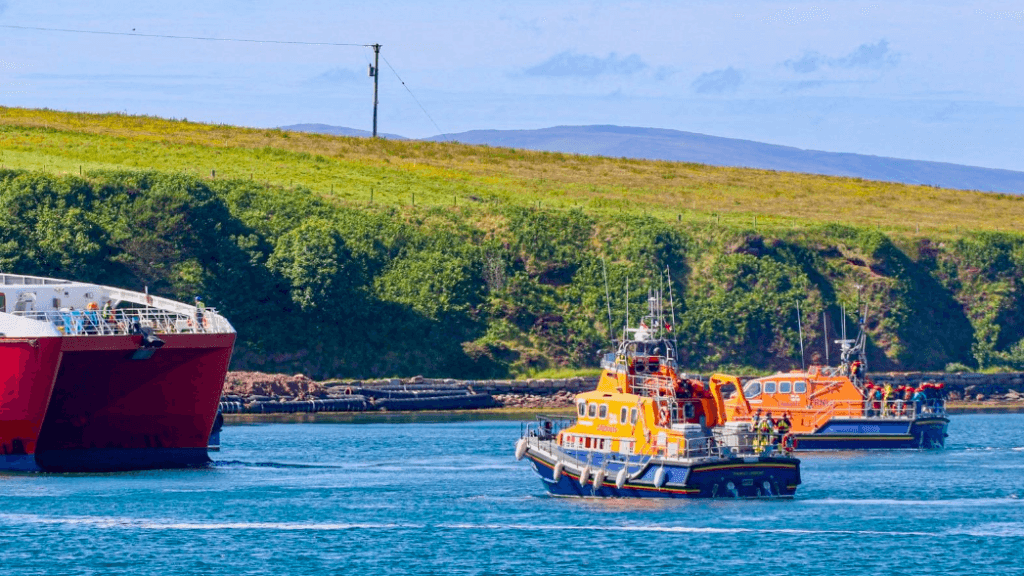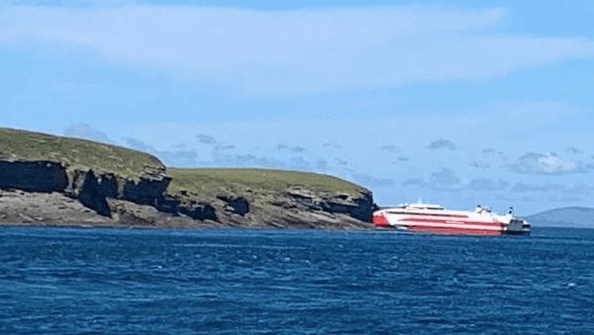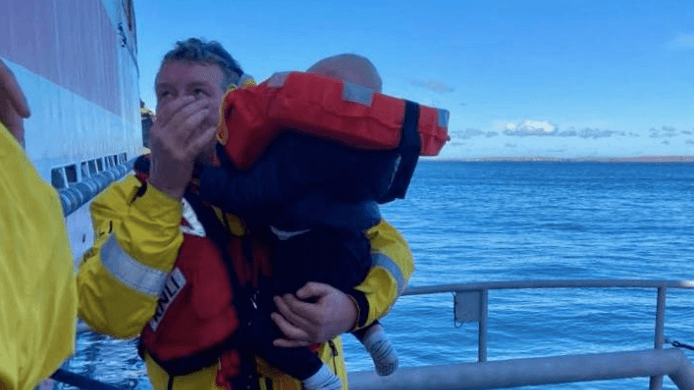Scottish ferry ran aground after master ‘fell asleep’

The Marine Accident Investigation Branch (MAIB) has published its accident investigation report into the grounding of a passenger ferry off the Orkney Islands in 2022.
The roll-on/roll-off passenger ferry Alfred caused chaos when it ran aground off the east coast of Swona Island in the Scottish archipelago on 5 July 2022.
Pentland Ferries’ MV Alfred came ashore on uninhabited Swona during a crossing between Gills Bay (mainland, west of John O’Groats) and St Margaret’s Hope (Orkneys) in the Pentland Firth. The RNLI’s Longhope crew evacuated 45 people – and a snake – when the incident happened.
The impact caused injuries to 41 passengers and crew, and damage to Alfred’s port bulbous bow and almost all the vehicles being transported on board. The vessel subsequently refloated on the rising tide and continued to St Margaret’s Hope under its power later that afternoon; there was no pollution, but the vessel was withdrawn from service for repairs.

MAIB’s investigation found that Alfred grounded because the master experienced a loss of awareness while helming the vessel close inshore, almost certainly due to falling asleep for approximately 70 seconds.
During this period the master allowed Alfred’s heading to swing towards the coast unchecked. When the master became aware of the vessel’s predicament he was unable to prevent the ferry striking the rocks at 13 knots.
The investigation also identified that Alfred’s passage plan was inadequate and that its Electronic Chart Display Information System, which was the ferry’s primary means of navigation, was not being used effectively to support safe navigation and warn of danger. Despite the passage plan being in place since the vessel entered service in 2019, neither the Pentland Ferries’ annual audits nor the Maritime and Coastguard Agency’s surveys had detected this safety issue.
MAIB also found that the ferry had been routinely passing too close to land, and a lack of assurance that safety procedures were being followed.
Operator Pentland Ferries says it has taken ‘significant action’ to enhance its procedures and ensure they are followed. It has implemented a fatigue management plan, strengthened its emergency response procedures, and enhanced the training provided to crew and shore staff.

“Lots of safety action has been taken as a result of this accident, and I am encouraged by the actions taken by Pentland Ferries to address the issues raised in this report,” says Chief Inspector of Marine Accidents Andrew Moll. “However, this accident offers a wider opportunity for lessons to be learned across the maritime industry.
“Alfred’s master routinely operated very close to the coast, leaving little margin for error when they found themselves in an unsafe situation. Regardless of the type of vessel you are operating, it is critical that a safe passage plan is made and followed. Always allow sufficient sea room to enable action to be taken in good time if things are not going to plan.
“On the afternoon of 5 July 2022, the master almost certainly fell asleep and allowed the ferry to swing towards land. Crew should always be sufficiently well rested when coming on duty.
“Finally, this case highlights the importance of management assuring themselves that plans and procedures they have put in place are actually being followed. If you have management oversight of a vessel or maritime operation, ask yourself; do I know that our crews and front-line staff are following our procedures, and are our plans fit for purpose in a real-life emergency situation?”










